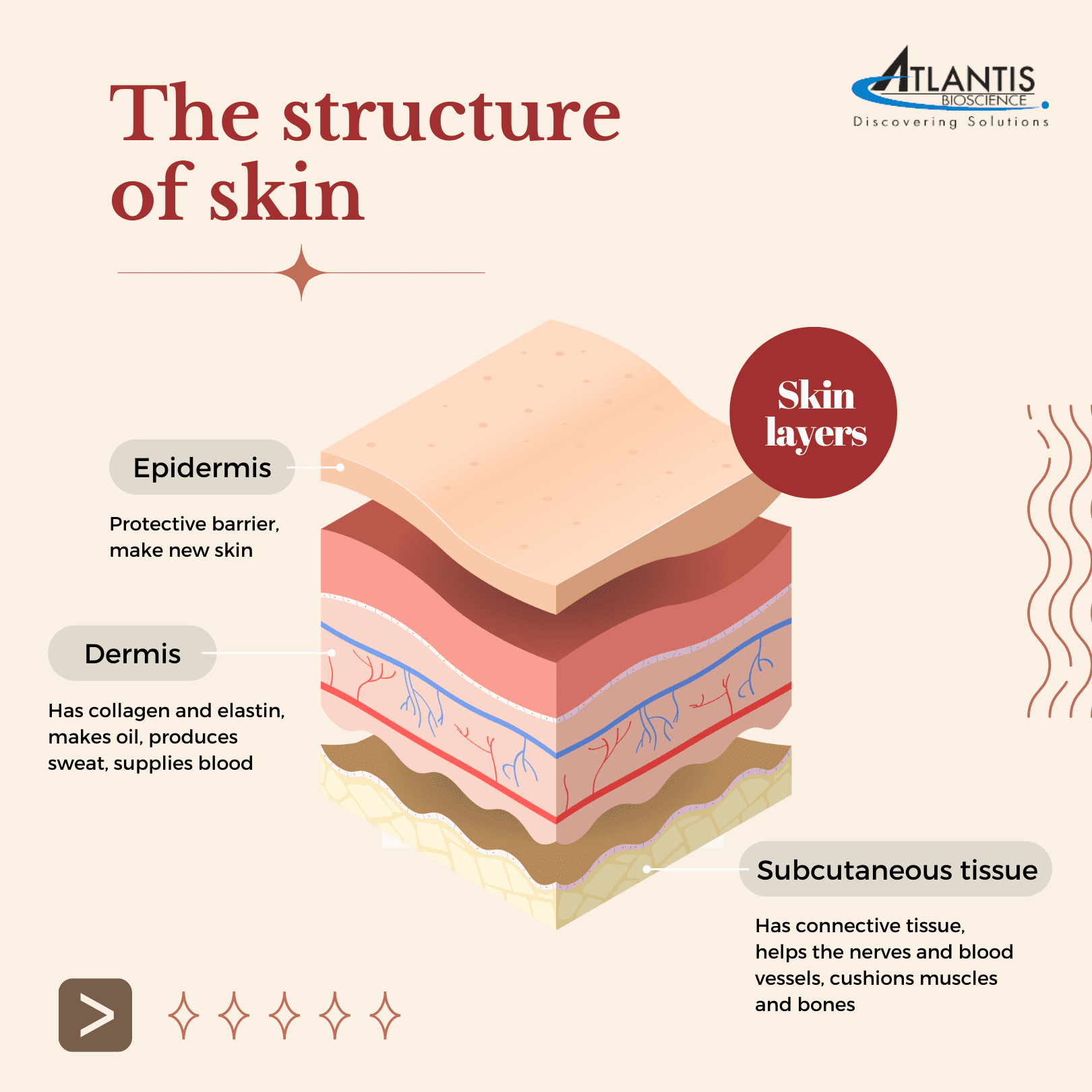- Your cart is empty
- Continue Shopping
The secret to enhancing the efficacy of skincare products

The secret to enhancing the efficacy of skincare products
- elsbizadmin404
- Blog
- Reading Time: 3 minutes

Why is skin penetration important to skincare ? The answer is it will perfectly deliver skincare to the skin. Then, they must penetrate the skin properly. Before we discuss skin penetration, let me show you the structure of the skin.
The structure of skin

The skin is composed of 3 main layers including, epidermis, dermis, and subcutaneous tissue.
Epidermis
Epidermis is the outer layer of the skin. The main function of epidermis is to protect the skin from environmental damage. Because it lacks blood vessels, it relies on the dermis for nutrients and waste disposal.
Dermis
The dermis is the thick, vascular layer of the skin lying beneath the epidermis. Collagen and elastin are produced here, as well as nutrients & blood supply to the epidermis.
Subcutaneous tissue
There are several layers of skin, but the subcutaneous layer is the deepest. The majority of it is composed of fat cells and connective tissue. Body fat is mainly stored here. A layer of subcutaneous tissue serves as an insulator for internal organs and muscles.
Nowaday, many skincare manufacturers develop skincare products that target different layers of the skin. There are many properties that determine skin penetration including,
Physicochemical characteristics of the ingredient
500 Daltons rule
The smaller size of ingredients means it easily penetrates through the skin. The size molecules under or equals to the 500 Daltons that can effectively cross the skin barrier. There are many scientists trying to develop the active ingredients by reducing the size of molecules.
Properties of molecules
There are two mains properties, which are oil and water soluble. The molecules that have oil soluble properties can penetrate through under the skin surface. For the water soluble, it works only on the skin surface. AHAs (Water-soluble) and Salicylic acid (Oil-soluble) are often used in skincare products to deep cleanse pores and exfoliate the skin.
pH level
The pH level also affects the skin penetration. It is easy for some acids to enter the body through the skin when they change their charge to neutral. For example, ascorbic acid.
Active ingredients concentration
The concentration of active ingredients effect skin penetration. An example is
that a 20% solution of ascorbic acid had the best absorption, while a 25% solution had the least absorption, and even a 30% solution had the least absorption.
Delivery system
Encapsulation
Biologically active ingredients are often encapsulated in cosmetics and personal care products to increase their stability. Encapsulation is primarily used to deliver active ingredients to the skin’s target site. The active ingredients must also be preserved during formulation, storage, and application of the final cosmetic product. Due to its ability to fulfill all of these requirements, microencapsulation is an ideal carrier system for cosmetic active ingredients
Other deliver systems
There are many ways to deliver the ingredients to the target site such as
microneedling and laser treatments. Their purpose is to create small abrasions on the skin to facilitate the penetration of certain skincare ingredients.
Penetration time
It takes longer for rinse off products to penetrate ingredients than leave on products, such as moisturizers and serums.
Example of skincare products
One of the interesting products that use encapsulation techniques is DDS. “Deep Delivery” delivers active ingredients directly to the deepest strata of the epidermis, ensuring a more intense and precise effect on cells and structures.
- The ideal for the formulation of products including, Depigmentation substances, antioxidants, anti-wrinkle, firming, redness reducing, soothing, highlighting, and reshaping agents.
In comparison to when applied freely, these deep delivery systems allow up to 12 times more active ingredients to reach the inner layers of the skin.
Therefore, using a greater percentage of 100% functionally active ingredients ensures exponentially better results and increased customer satisfaction with cosmetic formulations.
CONTACT

QUESTIONS IN YOUR MIND?
Connect With Our Technical Specialist.

KNOW WHAT YOU WANT?
Request For A Quotaiton
OTHER BLOGS YOU MIGHT LIKE
HOW CAN WE HELP YOU? Our specialists are to help you find the best product for your application. We will be happy to help you find the right product for the job.

TALK TO A SPECIALIST
Contact our Customer Care, Sales & Scientific Assistance

EMAIL US
Consult and asked questions about our products & services

DOCUMENTATION
Documentation of Technical & Safety Data Sheet, Guides and more..
